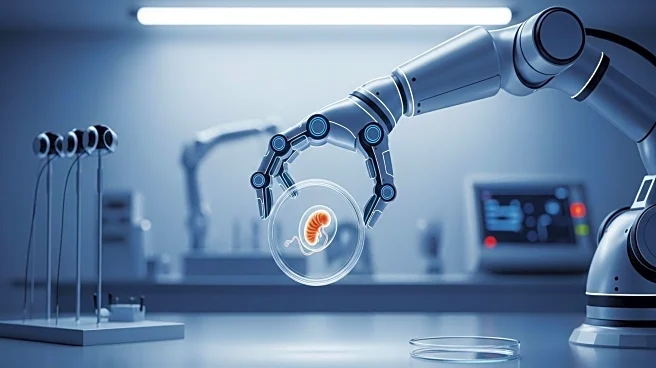What is the story about?
What's Happening?
In Mexico City, a groundbreaking clinical trial is utilizing robotic technology to automate the in-vitro fertilization (IVF) process. The trial, conducted by Conceivable Life Sciences, involves a system called Aura, which automates 205 manual steps in IVF, from egg freezing to embryo creation. This technology uses algorithmic computer-vision software to select the most viable sperm and employs robotic arms for precise fertilization. The trial aims to make IVF more accessible and affordable, addressing the global issue of infertility, which affects one in six adults. The system has already resulted in the birth of at least 20 babies through clinical trials.
Why It's Important?
The use of robotics in IVF has the potential to significantly reduce costs and increase accessibility to fertility treatments, especially in regions with limited access to such services. This innovation could transform the fertility industry by providing consistent and precise results, reducing human error, and enabling more patients to receive treatment. The trial in Mexico City is particularly impactful as it offers free automated IVF to couples who otherwise could not afford it, potentially setting a precedent for global fertility care.
Beyond the Headlines
The integration of AI and robotics in fertility treatments raises ethical and regulatory questions, particularly regarding the approval and oversight of such technologies. While the technology promises to democratize access to IVF, it also challenges traditional practices and may face resistance from those concerned about the implications of AI in human reproduction. The success of these trials could lead to broader acceptance and implementation, but it will require careful consideration of ethical standards and regulatory frameworks.















